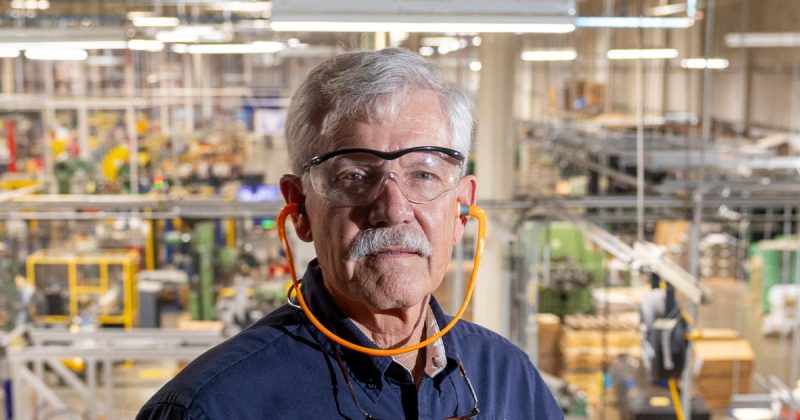
Rick Huether, CEO of Independent Can Company, a Maryland-based family business since 1929, is facing a tough reality. His company, which produces cans for major brands like Wegmans and Burt’s Bees, is grappling with the consequences of fluctuating tariffs on imported steel. The company has had to raise prices twice this year alone, a direct result of the 50% import tax on foreign-made steel—a crucial component in their manufacturing process. This isn’t the first time tariffs have impacted Independent Can Company; similar challenges arose during President Trump’s first term, leading to price increases then as well.
Huether, a Republican, acknowledges the administration’s aim to boost American industry. He shares the goal of bringing manufacturing back to the US and keeping his own company, with its 400 employees, thriving domestically. However, he argues that the current unpredictable and ever-changing tariff policies are making this goal significantly harder to achieve. The constant shifting of the rules makes long-term planning impossible, hindering the company’s ability to invest and grow.
Independent Can Company’s reliance on specialized, thin-gauge steel called tinplate, mostly sourced from overseas due to superior quality and pricing, is at the heart of the problem. Domestic tinplate is not only scarce but also significantly more expensive. The tariffs exacerbate this issue, forcing the company to absorb substantial costs or pass them on to consumers. The recent price increases, while necessary for survival, risk driving customers to cheaper, potentially less safe or sustainable alternatives.
The situation is further complicated by the fact that the company’s production relies on large steel coils not currently available domestically. American steel companies haven’t kept pace with manufacturers’ needs, leaving Independent Can Company with limited options. Huether suggests that a long-term solution requires more than just trade policy adjustments. He emphasizes the need for expanded vocational training and a shift in societal perceptions of manufacturing jobs to build a skilled workforce capable of supporting a revitalized American manufacturing sector.
Huether’s experience highlights a broader challenge facing American businesses. The unpredictability of trade policies creates instability and uncertainty, making it difficult for companies to plan for the future and invest in growth. It underscores the need for clear, consistent, and predictable trade policies to support American businesses and create a stable economic environment. The long-term success of American manufacturing depends on more than just tariffs; it demands a comprehensive strategy that addresses workforce development and the needs of businesses operating in a global market.










